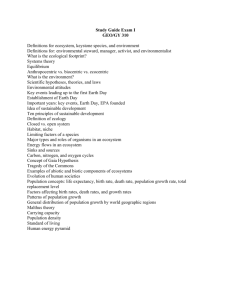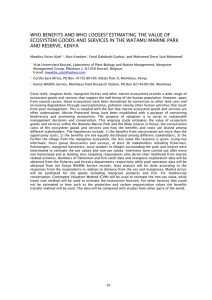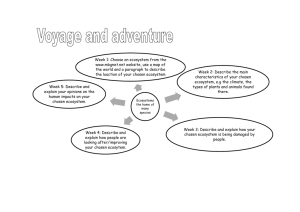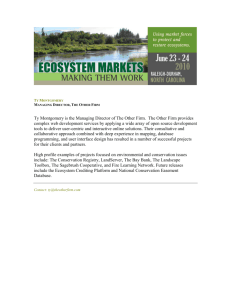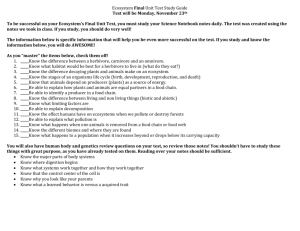Mangrove restoration boosts ecosystem services and conservation incentives M.W.Skov
advertisement
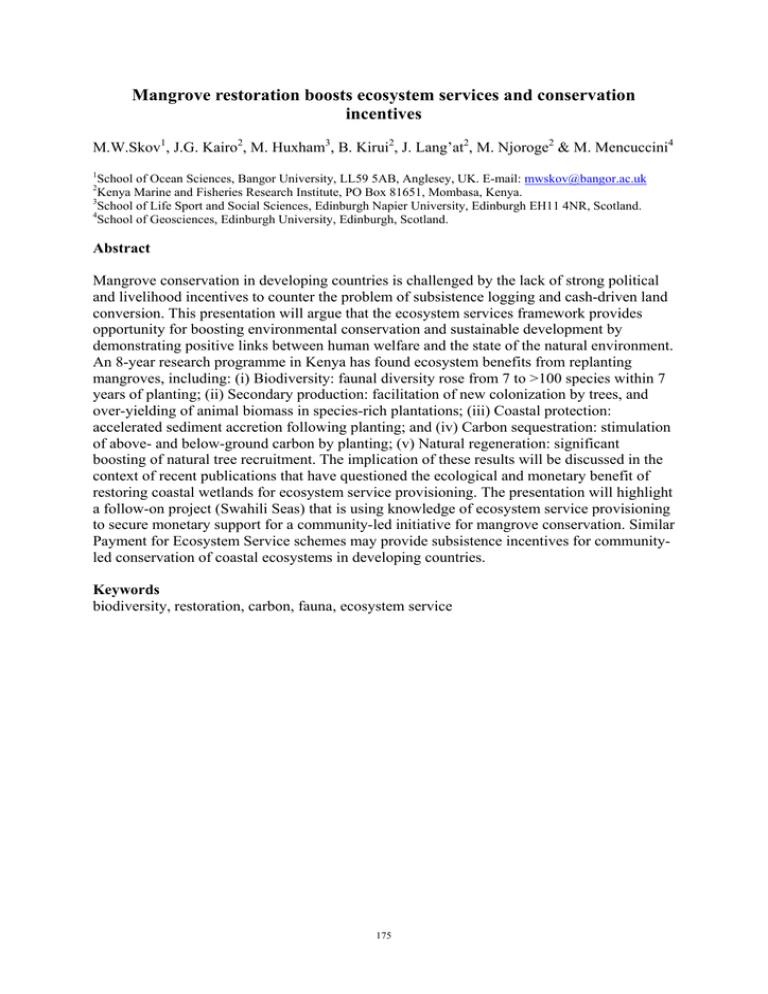
Mangrove restoration boosts ecosystem services and conservation incentives M.W.Skov1, J.G. Kairo2, M. Huxham3, B. Kirui2, J. Lang’at2, M. Njoroge2 & M. Mencuccini4 1 School of Ocean Sciences, Bangor University, LL59 5AB, Anglesey, UK. E-mail: mwskov@bangor.ac.uk Kenya Marine and Fisheries Research Institute, PO Box 81651, Mombasa, Kenya. 3 School of Life Sport and Social Sciences, Edinburgh Napier University, Edinburgh EH11 4NR, Scotland. 4 School of Geosciences, Edinburgh University, Edinburgh, Scotland. 2 Abstract Mangrove conservation in developing countries is challenged by the lack of strong political and livelihood incentives to counter the problem of subsistence logging and cash-driven land conversion. This presentation will argue that the ecosystem services framework provides opportunity for boosting environmental conservation and sustainable development by demonstrating positive links between human welfare and the state of the natural environment. An 8-year research programme in Kenya has found ecosystem benefits from replanting mangroves, including: (i) Biodiversity: faunal diversity rose from 7 to >100 species within 7 years of planting; (ii) Secondary production: facilitation of new colonization by trees, and over-yielding of animal biomass in species-rich plantations; (iii) Coastal protection: accelerated sediment accretion following planting; and (iv) Carbon sequestration: stimulation of above- and below-ground carbon by planting; (v) Natural regeneration: significant boosting of natural tree recruitment. The implication of these results will be discussed in the context of recent publications that have questioned the ecological and monetary benefit of restoring coastal wetlands for ecosystem service provisioning. The presentation will highlight a follow-on project (Swahili Seas) that is using knowledge of ecosystem service provisioning to secure monetary support for a community-led initiative for mangrove conservation. Similar Payment for Ecosystem Service schemes may provide subsistence incentives for communityled conservation of coastal ecosystems in developing countries. Keywords biodiversity, restoration, carbon, fauna, ecosystem service 175
